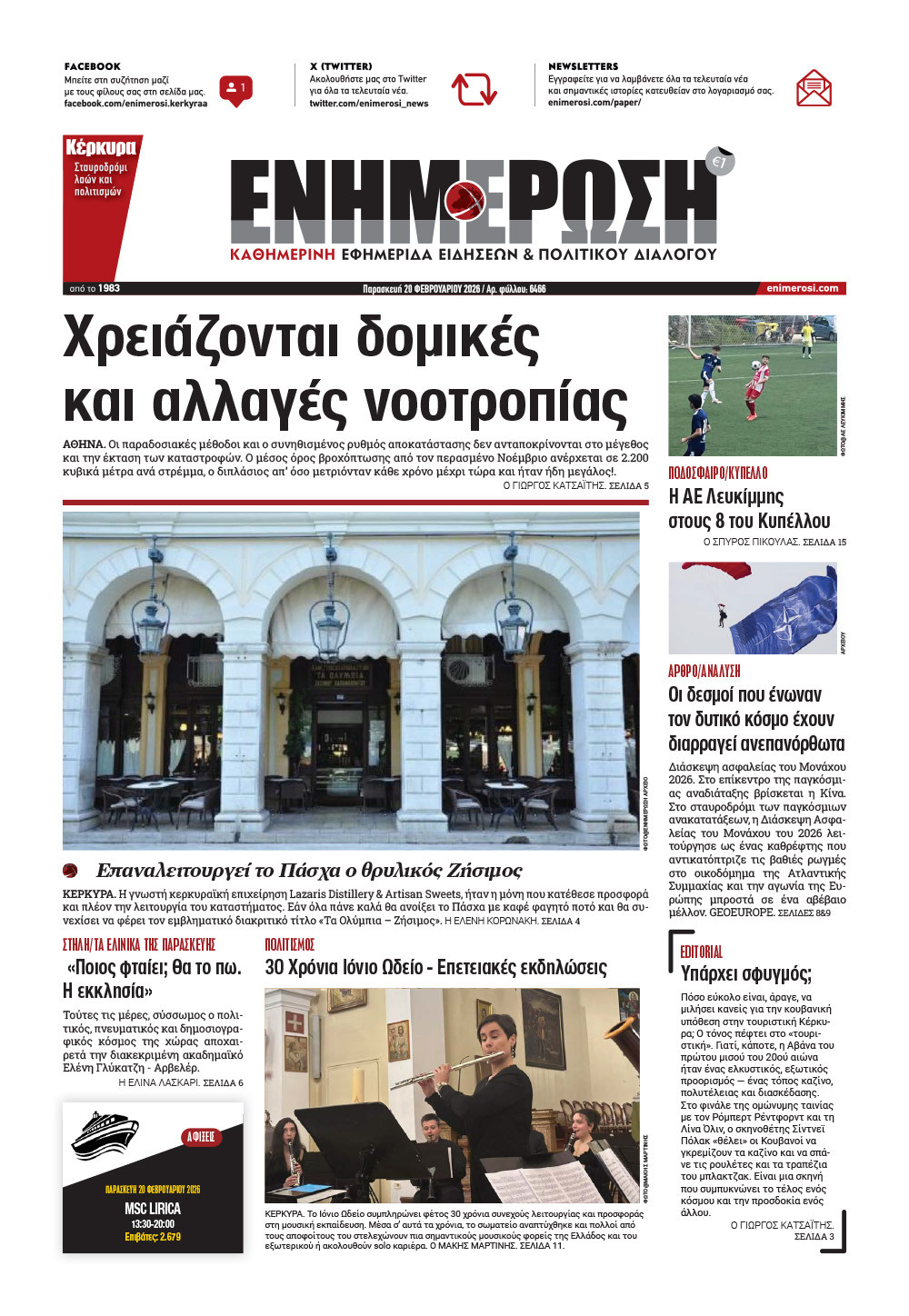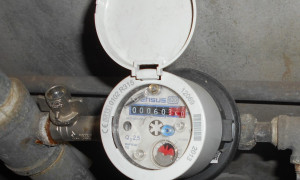Rescue of animals from fire in North Corfu
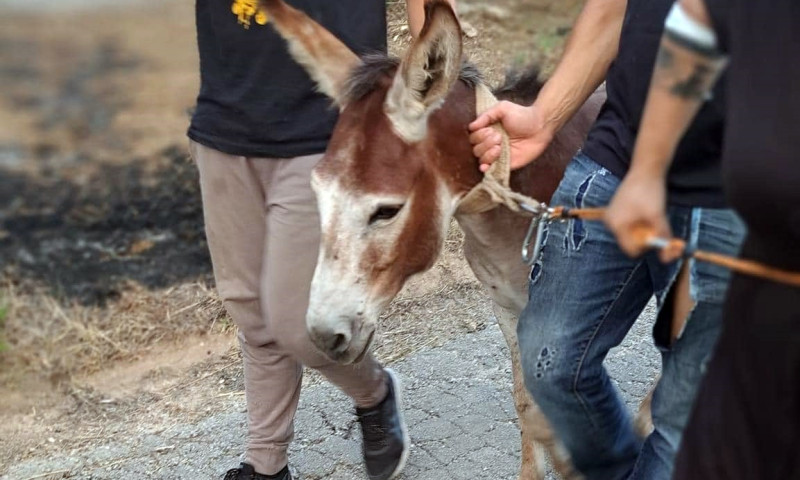
CORFU. Animal-loving volunteers, firefighters and police all showed their humanity and compassion during this difficult ordeal.
The local community showed its humanity during the major ordeal of the fire. Apart from the flood of assistance offered to residents by volunteers and visitors in northeast Corfu, there was also an immediate mobilisation of animal lovers, while firefighters and police officers also demonstrated their compassion.
The photo capturing Fire Chief Nektarios Theodoropoulos carrying a frightened dog in his arms to rescue it from the flames in the village of Loutses went viral on the internet. The same happened with photos of Traffic Police and the Special Police Task Force (OPKE) officers.
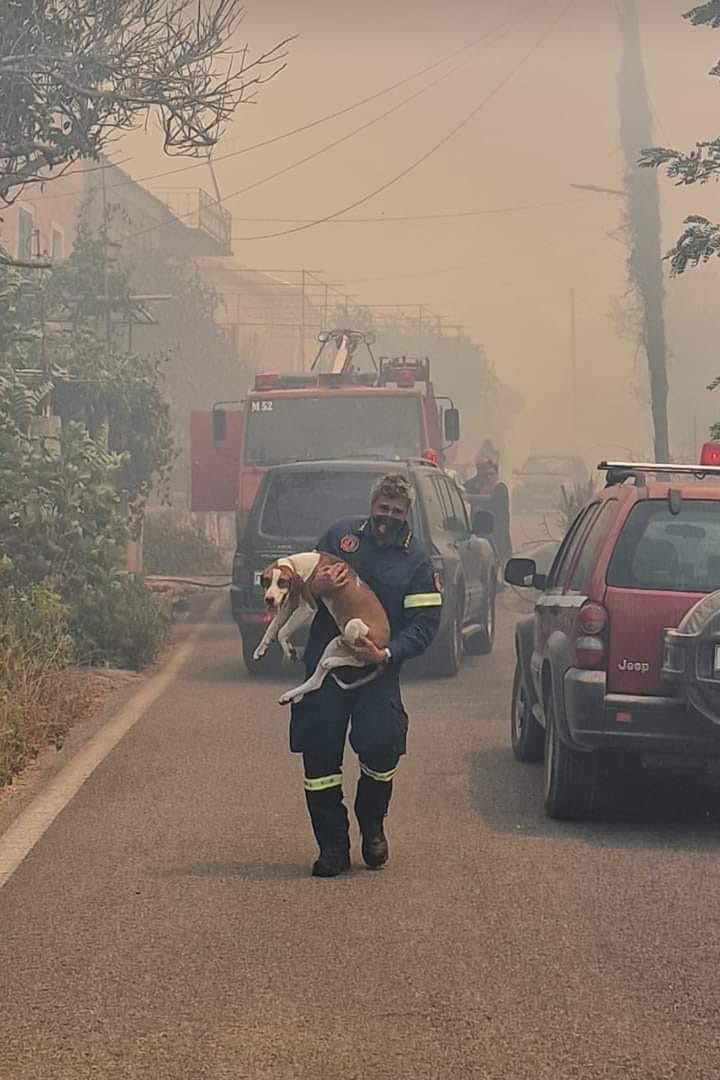
1690388326.jpg?)
Permission from the General Secretariat
There were great intentions, but the conditions were practically prohibitive for the presence of a large number of people. A group of about ten individuals, organised through social networks - whether they belonged to animal welfare organisations or not - took the initiative to rescue animals that were lost, trapped or even abandoned in the areas of Loutses and Perithia.
Due to the fact that movement was both limited and dangerous in the burning areas, the volunteers requested and obtained permission from the newly established General Secretariat for Pets, which allowed only three transportation vehicles for safety reasons.
They dedicated many hours of their personal time searching for and rescuing dogs, cats, donkeys, horses and goats, which were then transferred to safe places.
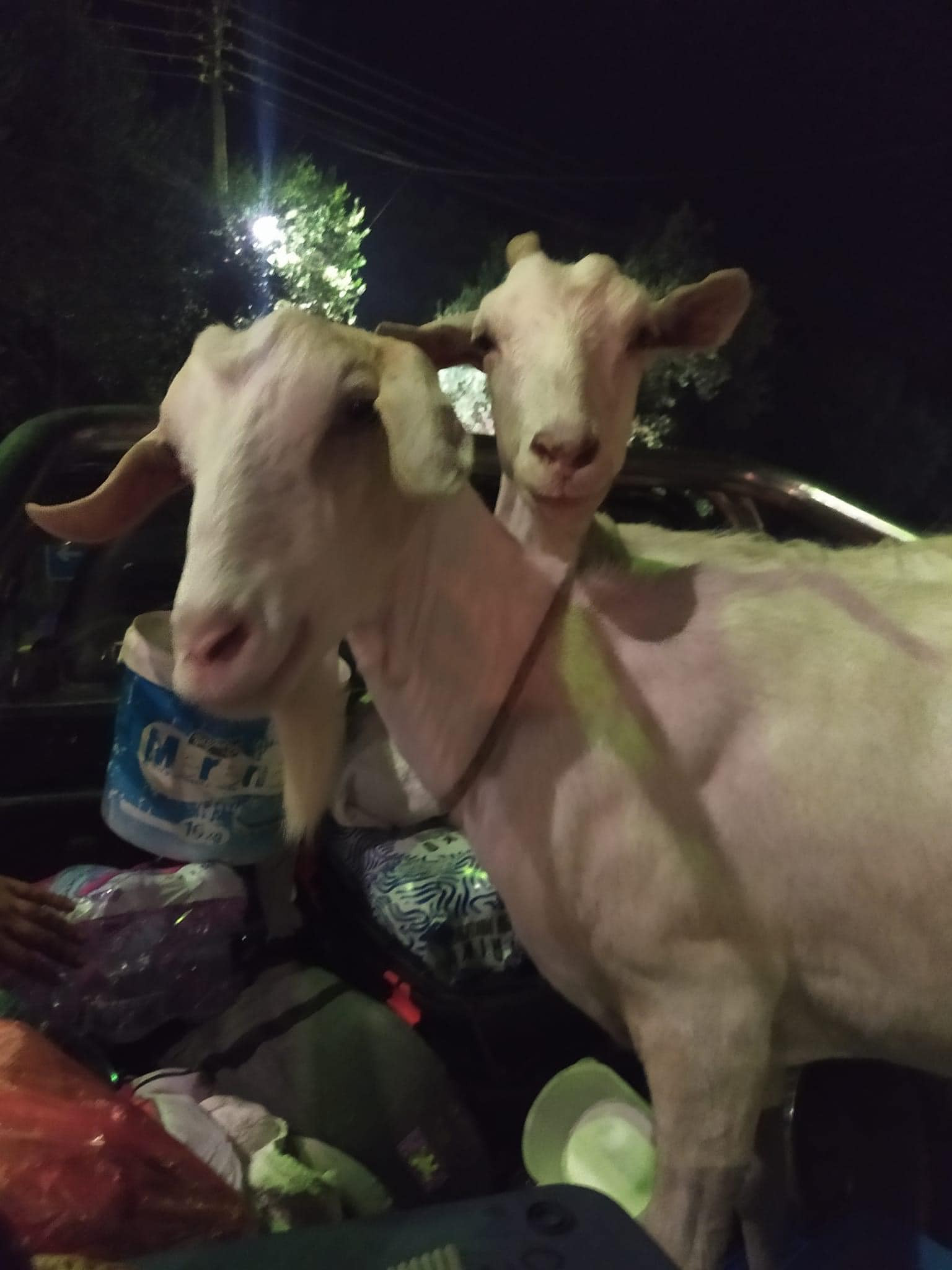
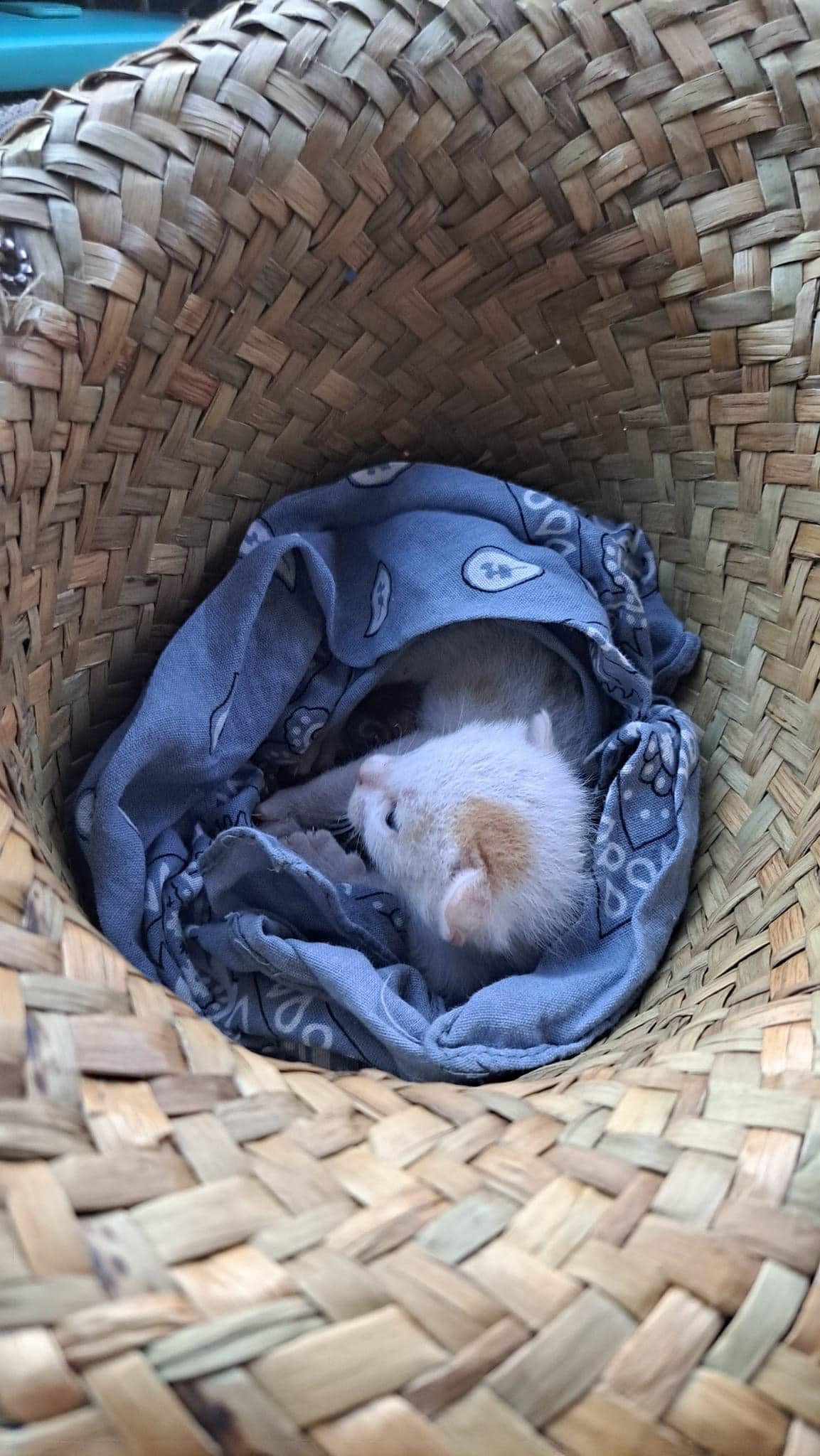
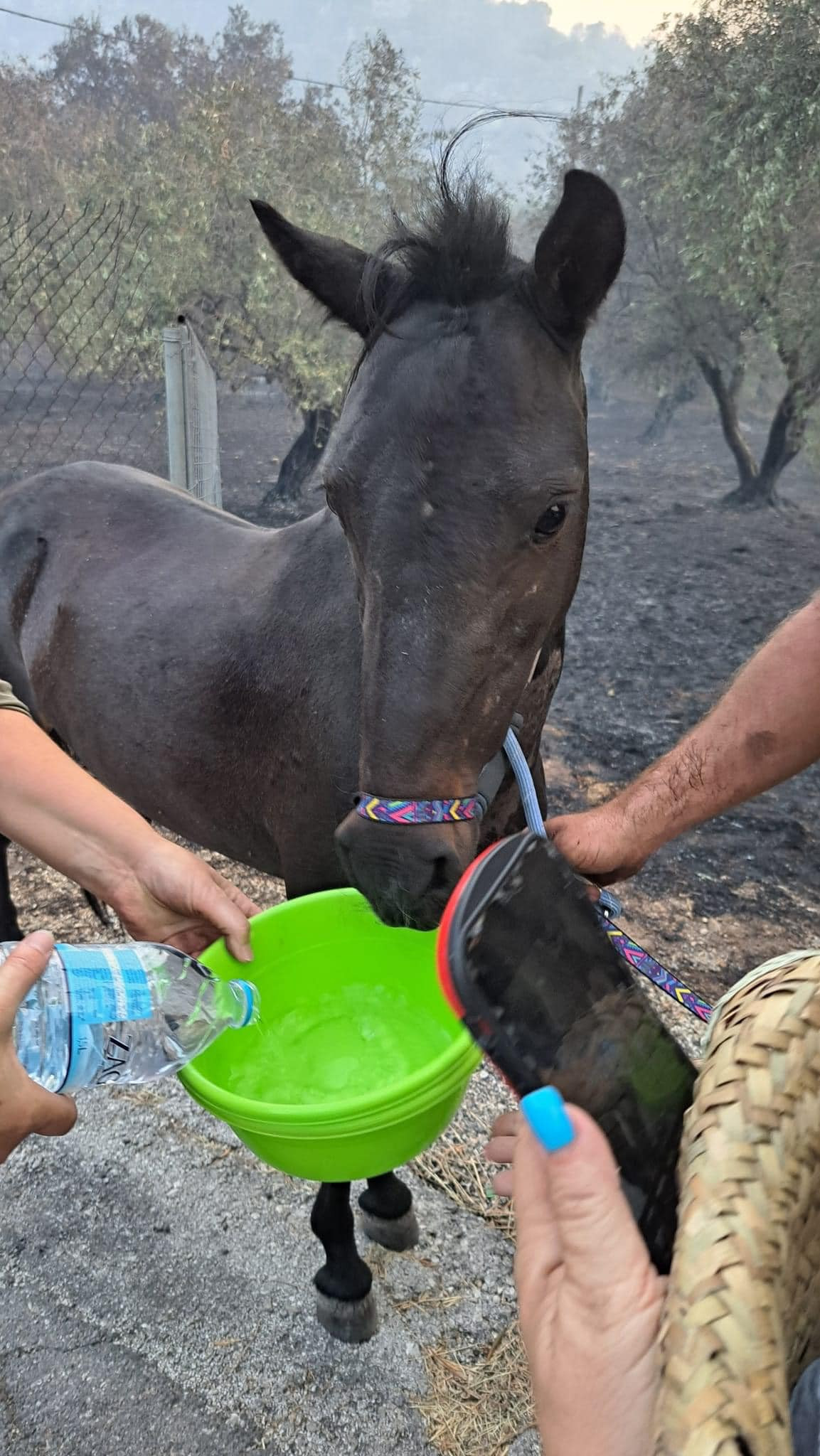
Dogs tied up
"We saved 5 dogs, 2 donkeys, 1 horse, 2 goats and 2 large birds," Stami Tzora from the "Adopt" Society told Enimerosi. "There were many cats, but we managed to catch only one adult cat and two kittens. The majority of the residents who evacuated their homes had taken their pets with them. However, we also came across some dogs that were tied up."
Currently, the animals are being temporarily housed either in homes, estates or veterinary clinics, where they will receive the care they need until they can return to their homes or be adopted.
CHRISTINA GEREKOU



